From August 24 to September 2, the 2nd International Summer School on Inverter-Based Resources-Dominated Power Systems was successfully held. The event was co-hosted by the Department of Electrical Engineering and Applied Electronics (EEA), Tsinghua University, and the Control and Power Research Group, Imperial College London, and supported by the Tsinghua University–Imperial College London Joint Research Centre for Intelligent Power and Energy Systems. This summer school attracted 80 young students from 10 countries around the world, focusing on the frontier development of power-electronic-based power systems. It aimed to provide graduate students in the global power and energy field with a high-level platform for cutting-edge lectures and academic exchanges.
Thematic Courses: Gathering Global Experts to Explore the Frontier
This summer school invited 28 distinguished scholars and industry experts from internationally renowned universities such as Imperial College London, University of Cambridge, University of Strathclyde, Johns Hopkins University, The University of Texas at Austin, National Technical University of Athens, Monash University, University of Melbourne, Seoul National University, Sharif University of Technology, as well as top Chinese universities and institutes including Tsinghua University, Peking University, Zhejiang University, Shanghai Jiao Tong University, Tianjin University, and the China Electric Power Research Institute. Centered on the theme of “Control, Security, Stability, and Operation Planning of Power-Electronic-Based Power Systems,” it presented a high-level, multidimensional, and forward-looking academic feast for students.
The course content closely addressed major technical challenges in developing new power systems, covering the entire technological chain from converter control to system-level operation planning. In the field of modeling and control of power electronic equipment, Prof. Wang Xiongfei of Tsinghua University discussed the functional specifications and stability challenges faced by large-scale deployment of grid-forming converters; Prof. Giordano Scarciotti of Imperial College London shared model reduction methods for high-inverter-penetration systems; Prof. Zhu Miao of Shanghai Jiao Tong University systematically analyzed key technologies of DC distribution networks and flexible DC transmission; Researcher Huang Linbin of Zhejiang University elaborated on the issue of system strength and the enhancement role of grid-forming converters; Prof. Ioannis Lestas of the University of Cambridge introduced decentralized stability analysis methods for inverter-dominated power systems; Prof. Li Hong of Zhejiang University discussed core issues of power-electronic-based systems from the perspectives of electromagnetic compatibility and system stability.
In the section on system stability analysis and theoretical reconstruction, Prof. Balarko Chaudhuri of Imperial College London and Prof. Sun Kai of Tsinghua University respectively lectured on frontier analysis and technical solutions for practical issues such as subsynchronous oscillation, large-scale renewable integration, and urban grid interaction; Prof. Behrooz Bahrani of Monash University systematically analyzed the small- and large-signal stability of grid-forming inverters; Prof. Nikos Hatziargyriou of the National Technical University of Athens introduced IEEE’s reconstruction and expansion of stability theories following the integration of power electronic equipment; Researcher Chen Lei of Tsinghua University further deepened students’ understanding of power-electronic-based system architectures from the perspectives of dynamic analysis and system control.
The curriculum included special topics on new relay protection methods and the development of power system simulation technologies. Prof. Hong Qiteng of the University of Strathclyde proposed new protection schemes for renewable-dominated power systems; Profs. Shen Chen and Xie Xiaorong of Tsinghua University respectively introduced key technologies of power system control and simulation, and oscillation analysis and suppression; Associate Prof. Choi Seunghwi of Seoul National University shared the construction and application of controller and power hardware-in-the-loop experimental platforms. Subsequent courses further extended to system security, reliability, and resilience assessment. Assistant Prof. Siqia Geng of Johns Hopkins University elaborated on a resilience analysis framework for inverter-dominated systems; Researcher Sun Mingyang of Peking University discussed the vulnerability of smart grids to parameter-tampering attacks on smart inverters; Prof. Mahmoud Fotuhi-Firuzabad of Sharif University of Technology lectured on reliability evaluation methods for large power grids with high renewable penetration.
In the section on power system operation and planning, Prof. Goran Strbac and Associate Prof. Teng Fei of Imperial College London deeply discussed the coordinated optimization of energy and frequency regulation services and the challenges of optimization under stability constraints; Prof. Xu Shiyun, senior engineer of the China Electric Power Research Institute, systematically analyzed security and stability issues and response strategies for systems with high renewable energy integration; Associate Prof. Zhang Ning of Tsinghua University introduced how to extract stability rules for power-electronic-dominated systems from data; Prof. Gyu-Sub Lee of Seoul National University discussed optimization methods for grid strength under high penetration of power electronic equipment; Prof. Chu Zhongda of Tianjin University comprehensively explored how to fully consider the influence of power electronic equipment in new power system planning.
The courses also focused on power market design and techno-economic analysis. Associate Prof. Zhong Haiwang of Tsinghua University introduced security-constrained operation and planning for multi-regional power systems under high renewable energy penetration; Prof. Pierluigi Mancarella of the University of Melbourne analyzed the economic mechanisms and market design principles of new system services; Prof. Ross Baldick of the University of Texas at Austin and Prof. Michael Pollitt of the University of Cambridge respectively shared experiences in market design for renewable-rich systems and the latest European practices in advancing deep decarbonization and energy security.
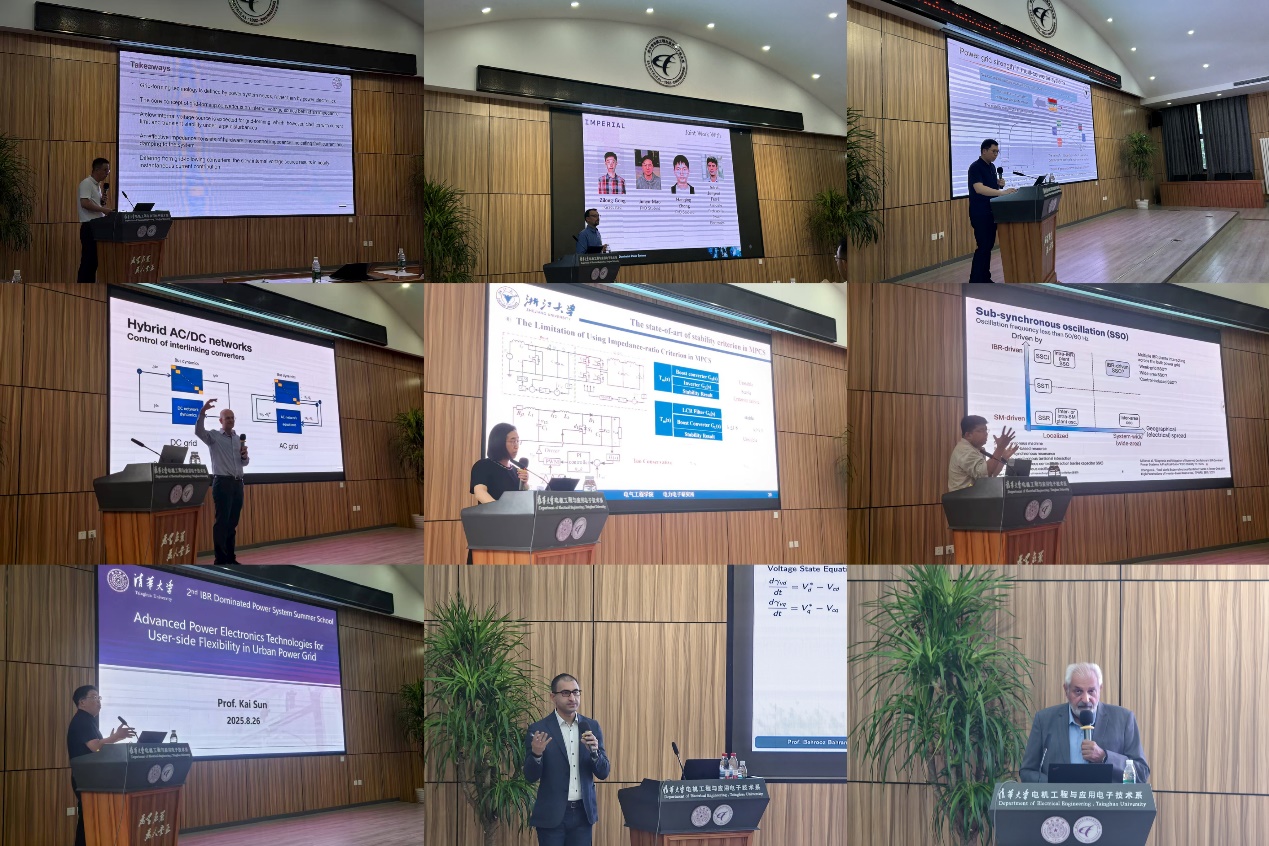
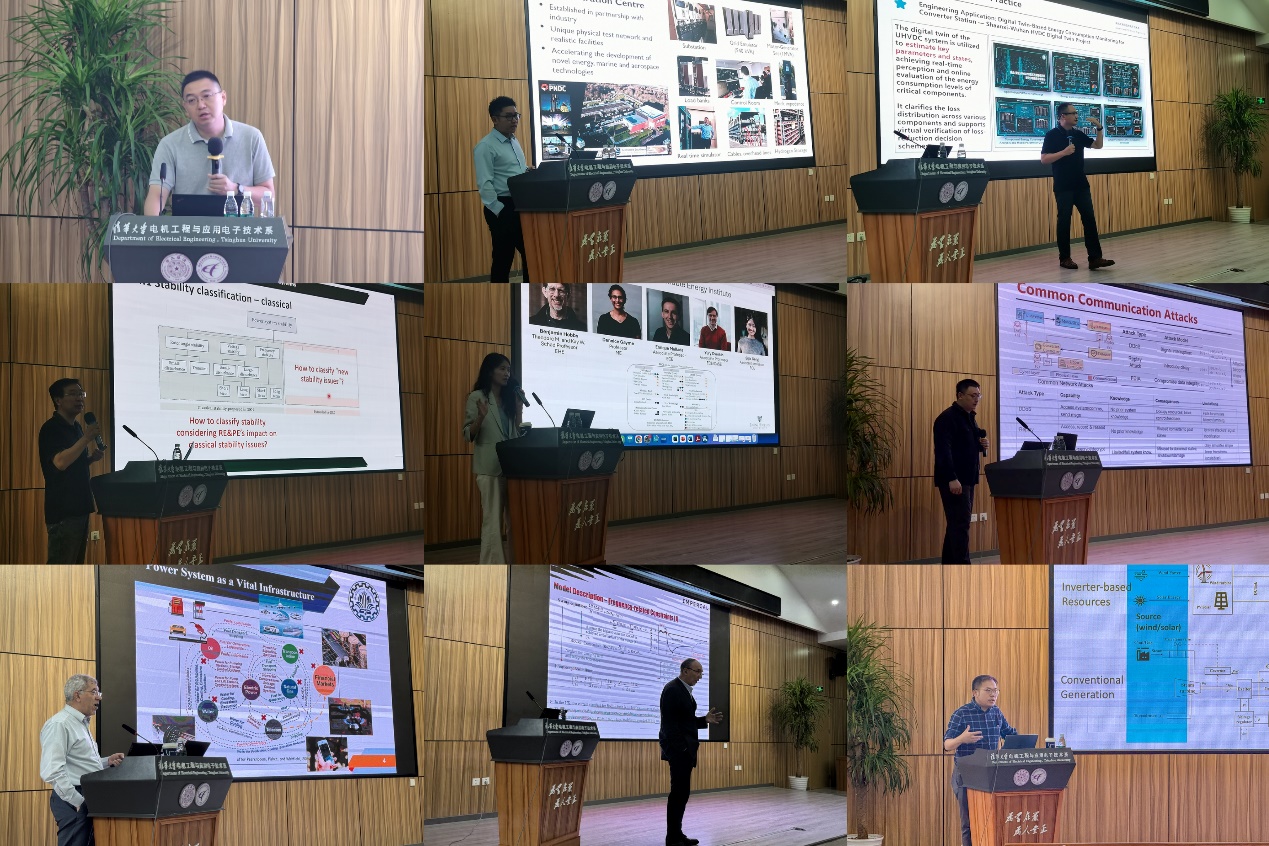
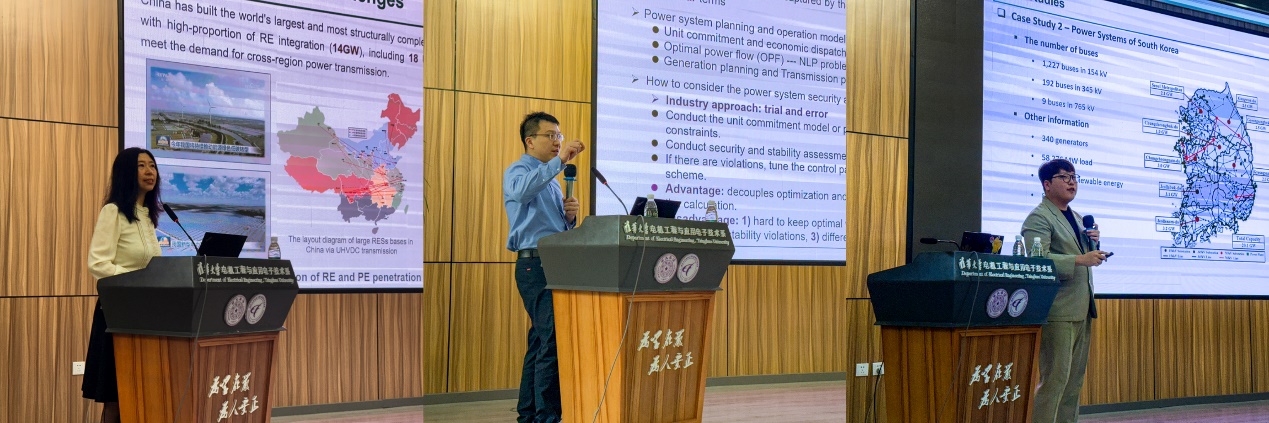
Teaching Highlights
Practical Visits: Integrating Intelligent Manufacturing with Industry-Academia Collaboration
On the afternoon of August 27, the students visited the Xiaomi Auto Factory in Beijing for a practical visit. Guided by factory representatives, the students observed the entire intelligent manufacturing process of new energy vehicles, focusing on the high-efficiency electric drive system production line, intelligent battery pack production line, and energy management strategies in the final assembly process. By learning on-site about the digital lean manufacturing platform’s real-time monitoring and optimization of energy media such as water, electricity, and gas, as well as the practical application of low-carbon processes and green supply chains in automobile manufacturing, the students gained an in-depth understanding of how advanced theories are implemented in industrial practice. Demonstrations of automated production lines, intelligent logistics systems, and plant-level energy management centers further deepened participants’ intuitive understanding of technology integration, energy efficiency improvement, and carbon management in large-scale industrial scenarios.
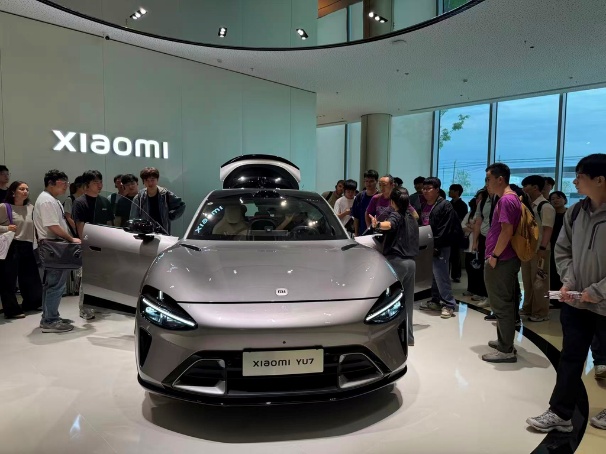
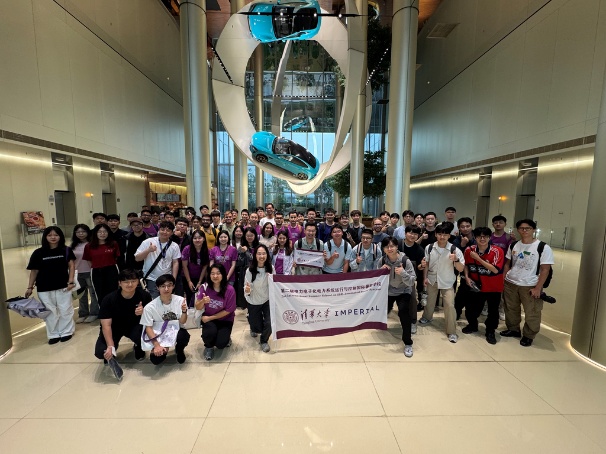
Faculty and students of the summer school visiting Xiaomi Auto and Robotics Factory
To deepen students’ understanding of frontier theories and technical practices in power systems, the summer school organized a technical visit to major research institutions in the energy and power sector on the afternoon of August 29. The students first visited the China Electric Power Research Institute (CEPRI), where they explored major experimental platforms and exhibition centers. Through on-site explanations and interactive discussions, the students gained a comprehensive understanding of CEPRI’s latest research achievements in areas such as new power system simulation and analysis, security defense system development, and renewable integration testing, and personally experienced the key role national research institutes play in supporting energy transition and driving technological innovation.
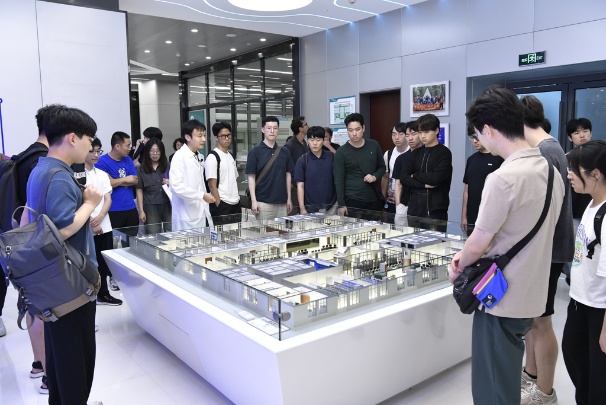
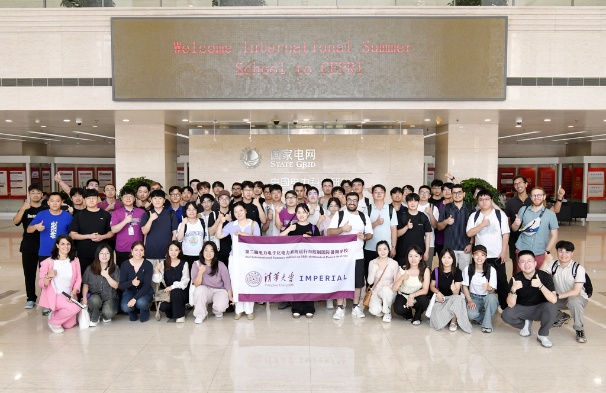
Faculty and students of the summer school visiting the China Electric Power Research Institute
Subsequently, the students visited the State Key Laboratory of Operation and Control of Renewable Power Systems. The laboratory researchers introduced innovative applications of high-power electronic devices such as Integrated Gate Commutated Thyristors (IGCTs) in high-voltage and large-capacity converters, demonstrated substation control systems based on digital converter valves, and conducted in-depth discussions on issues such as new DC transmission power semiconductor devices and key equipment for ultra-high-voltage DC transmission.
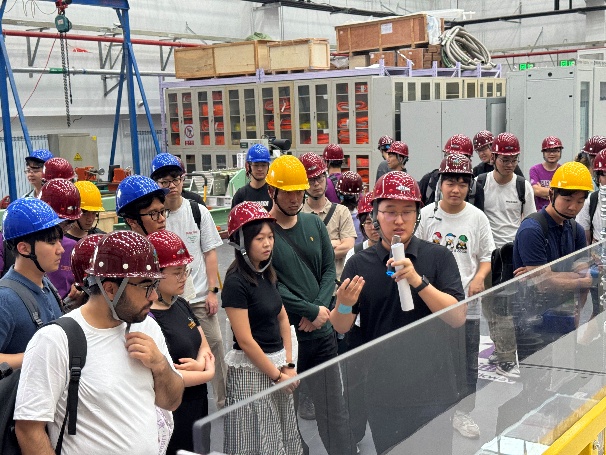
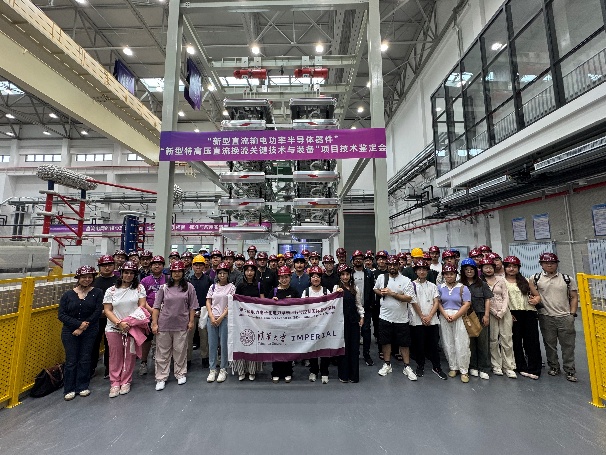
Faculty and students of the summer school visiting the State Key Laboratory of Operation and Control of Renewable Power Systems
Integration of Research and Practice: Empowering Future Energy Talents
Guided by cutting-edge research, this summer school systematically built graduate students’ comprehensive understanding of new power systems. The week-long thematic lectures covered key topics such as modeling, stability analysis, control and protection, system simulation, operation planning, and market mechanisms of power-electronic-based systems, broadening the students’ perspectives in related research directions. The technical visits built a bridge between theory and practice. Through firsthand experience of intelligent manufacturing and practical applications of power electronic equipment, the students further deepened their understanding of the course content and were inspired to translate research outcomes into engineering practice.
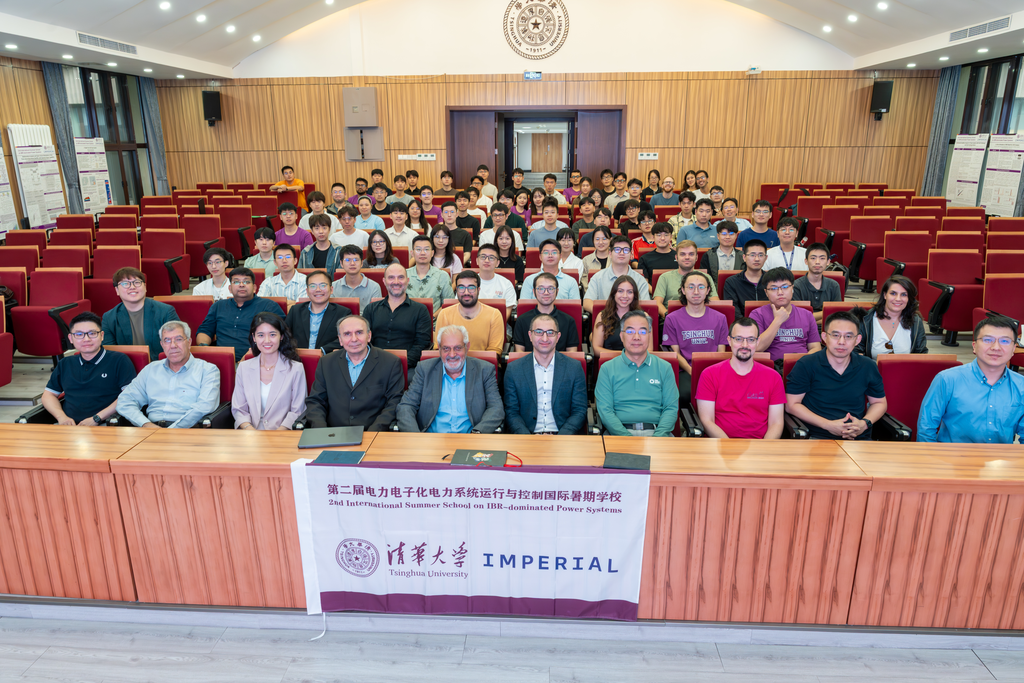
Group Photo of Faculty and Students of the Summer School

















 News & Events
News & Events